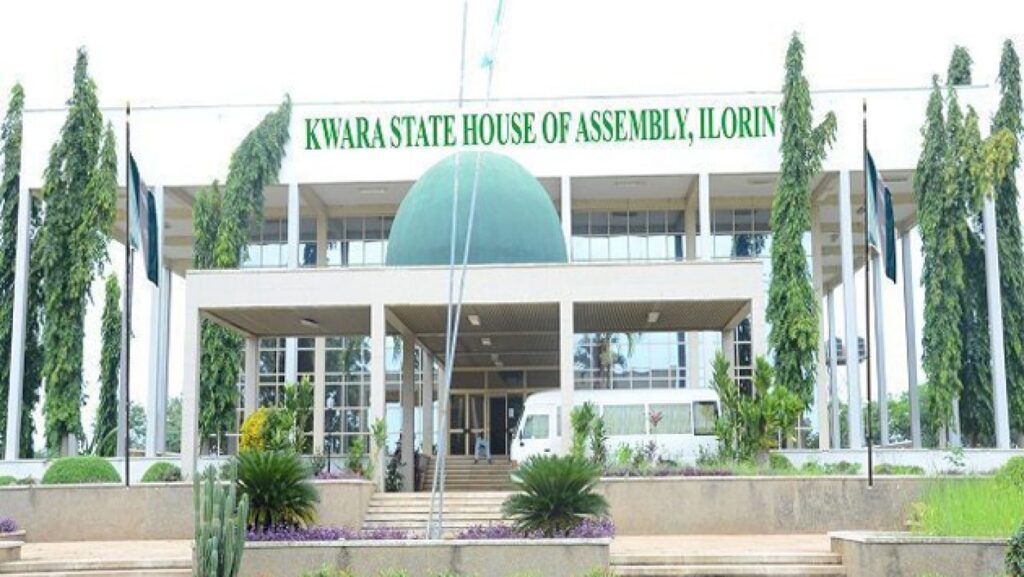The Kwara House of Assembly Explained
INTRODUCTION
The legislature is the democratic platform and a catalyst for nation/states to make laws for creating an enabling environment for sustainable human development and growth in all sectors of the economy and facts of life. The Kwara State House of Assembly (KWHA), like those of other states of the federation, is the legislative body, that is, the legislative arm of government, often referred to as the legislature. it is the official body of law makers chosen by a democratic election in Kwara State with power to make laws, amend or repeal laws for the peaces, order and good governance of the state for the good of the people without prejudice to or conflict with the provisions of the constitution of the federal republic of Nigeria, 1999 (as amended). It must be stated clearly that the state legislature does not have power to legislate on National issues as these are the responsibilities of the National Assembly. However, the State House of Assembly do legislate on issues contained in the concurrent legislative list while that of exclusive list in the constitution is the sole responsibility of the National Assembly.
Vision
To be a leading State legislative House in Nigeria in the area of law making to promote good governance.
Mission
To make legislatives/law that will impact positively on the good people of Kwara towards achieving rule of law, equity, accountability and transparency in governance.
Source of Power and Functions
KWHA derives its powers and functions, from Section 4 Subsections 6 and 7 of 1999 Constitution (as amended).
Historical perspective
The 1979 general elections in Kwara State marked the emergence of the 1st legislature (1979 to 1983). The first legislature of the Kwara State House of Assembly was inaugurated in the in-door sports Hall of the Kwara State Stadium complex which was used as temporary complex for the legislature. The 2nd legislature (Oct. 1983 to Dec. 1983) was aborted through a military coup in 1983. The 3rd legislature (1992 to 1993), located at permanent site of the Assembly complex along Asa Dam Road Ilorin, which was commissioned on 1st January, 1992 by Brigadier Alwali jauji kazir was also short-lived due to a military coup. The 1999 constitution (as amended) gave birth to the 4th legislature (1999 to 2003). Democracy through credible elections is being sustain in Kwara State ever sinces. The 5th legislature was experienced between 2003 to 2007 while the 6th legislature came on board in June 2007. The Hon. Members of the 7th legislature of Kwara state were sworn in on 6th June, 2011 with a 4-year term of office.


THE KWARA STATE LEGISLATURE
Kwara State House of Assembly, like other Houses of Assembly in the country, derives its powers and functions, from section 4 subsections 6 and 7 of 1999 constitution ( as amended ). It is founded by the Executive arms of government through annual budgets in line with guide lines on expenditures provided by revenue mobilization allocation fiscal commission (RMAFAC). The House is guided by the 1999 constitution (as amended) and the House Rules conducting it day to day businesses.
The practice is that political parties contest elections in the sixteen (16) L.G.As for the twenty four (24) seats in the Kwara State House of Assembly, for the 24 constituencies of the state. The House is always inaugurated through a proclamation issued by the executive governor of the state calling for the first plenary session/sitting of the parliament.
At that first sitting the clerk of the House takes the registration of the successful Hon. Member-elect at the polls and screens the Returns of writ issued by Kwara State Independent Electoral Commission. After the roll call, election is conducted during the first plenary session for the position of the speaker and the Deputy Speaker. The election is presided over by the Clerk who then swears in the speaker of the House. Thereafter the Deputy Speaker is equally sworn in by the Clerk of the House.
The swearing –in of other members-elect would follow, and this will be administered by the speaker of the House. Then there is the appointment of the principal officers, in this case, The Majority Leader, The Deputy majority leader, the chief whip, The Deputy Chief whip and The Majority Leader Of the House which is determined by the strength of the parties the House. The stability of democracy in Kwara State has on undoubtedly enhanced the quality of legislative functions of the House owing largely to the cooperation, understanding and harmonious relationship among the three (3) arms of Government. It is worthy of note that the Kwara State House of Assembly is one of the few House of Assembly in the country that as not witnessed the impeachment of its Speaker to date.
